Little Miss Sunshine (2006)
Dir. Jonathon Dayton and Valerie Faris
Writ. Michael Arndt
w/ Greg Kinnear, Alan Arkin, Steve Carell, and Toni Collette
Co-directors Jonathon Dayton and Valerie Faris's mini-epic family romp acts much like the mirrors set in tiny rooms to gain a sense of space. Like many indie films, Sunshine uses time and plot sparingly, yet it does so in such a way that leaves the viewer with the feel of a full film. Greg Kinnear plays a father and self-help speaker trying to push his spiel national. Nursing home reject and Grandpa Alan Arkin is a bad boy druggie and sexpert who coaches his pageant queen-hopeful granddaughter (Abigail Breslin) Olive's dancing.
Enter Uncle Frank, an irresistibly terse Steve Carell, a disgraced literature professor freshly returned from the hospital on suicide watch to bunk with his morbid, mute fifteen-year-old nephew. When asked why he's stopped speaking, Dwayne (Paul Dano) points to a wall-sized caricature of Friedrich Nietzsche in reply. It's off to the funny farm from there, each character's personality colliding with the next as though this were a stage play in which everybody's a little bit twisted. And then there’s the Mom (Toni Collette) who wants nothing but honesty in her family and what's best for her kids.
The stage-play elements of the opening might normally come off as a bit trite, but this cast makes it work. In a noteworthy moment, the camera kneels along with Dad. Bracing his young daughter's shoulders, he wrings from her the promise that their trip to California to enter her in the “Little Miss Sunshine” beauty pageant will end triumph. Olive puts on a brave face and the family piles into the reliable old microbus for a cross-country run.
From there, we are plunged into the soups of human trials that smacks a bit of The Grapes of Wrath and films like Home for the Holidays. This family’s emotional challenges and achievements are so earthy and unpretentious, the humor so warm and sweetly lighthearted that big things become small and manageable. Where another viewpoint might have mired their problems in a more depressing model, Michael Arndt’s debut script takes daunting family issues like suicide and drug addiction and provides them with a very human and watchable perspective.
But despite all of their traumas, the connection between family members remains its main attraction. Whether it’s a depressed nephew standing on a pier hearing his uncle proclaim Proust a loser, or at-odds family members heaving-to as a unit to start the family bus, their frailties dissolve within a context few comedies bother to provide. It takes Sunshine to a level that soars.
These aren't people simply motivated by family obligations, though, any more than a random hodge-podge of emotional dysfunction. They're folks who have been tried by fire and have come out on the other side to want what's best for one another. Without even trying, the film tugs at the Little Miss Sunshine in all of us through its characters, asking us to be better people and to start by remembering to enjoy the world and those around us. When you're trying to snag the elusive limelight in a beauty contest, that's precisely the kind of crew you want in your corner.
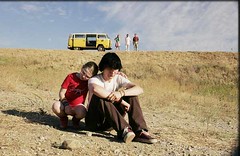

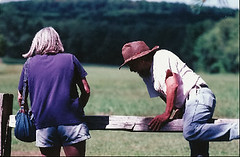
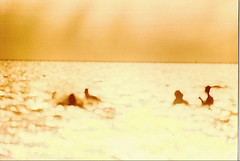
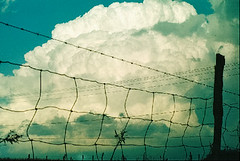
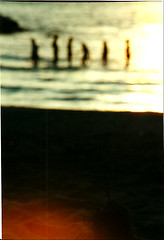
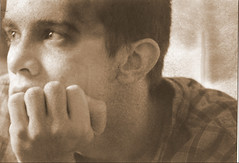
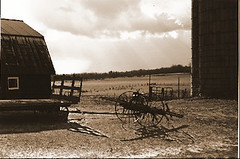
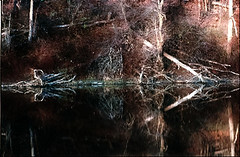






0 Comments:
Post a Comment
<< Home